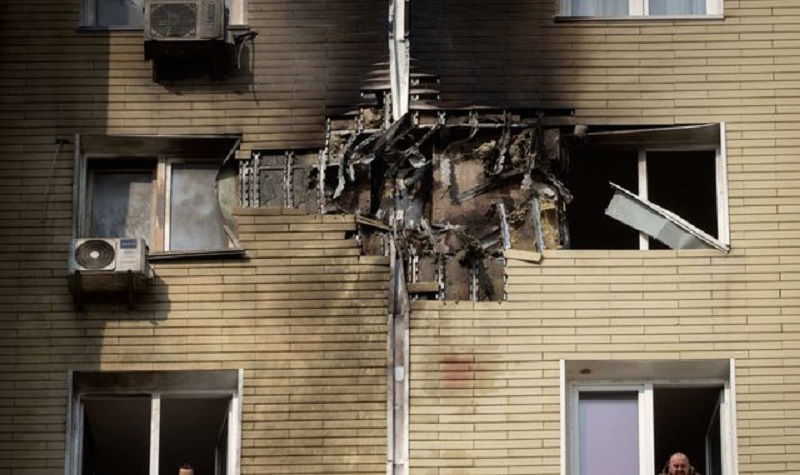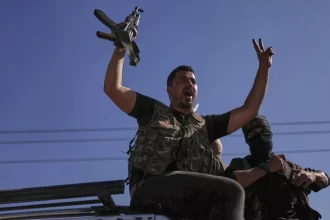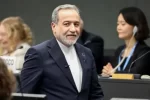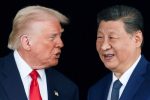In the early hours of Wednesday, the people of Kharkiv were jolted awake not by alarm clocks—but by the terrifying hum of drones and the violent tremors of explosions. What should have been another quiet night turned into a scene of panic, loss, and destruction.
Russia launched another devastating wave of strikes on Ukraine’s northeastern city, killing three people and injuring 60—among them children. The city, just 30 kilometers from the Russian border, has been a constant target in recent weeks, bearing the emotional and physical weight of a war that shows no signs of slowing.
Among the victims is a 65-year-old neighbor of Olena Khoruzheva, a local pharmacist and mother of two. She spoke tearfully about the moment the blasts hit.
“I grabbed the kids and ran to the hallway, away from the windows,” Olena recalled. “My younger one dropped to the ground and covered his head. I lay over him… Then came the silence… and we were thrown against the wall. Screams followed. ‘Help! Help!’ That’s all I could hear.”
This wasn’t just a strike—it was a moment frozen in trauma for dozens of families, their homes shattered, their peace violated.
First responders moved quickly, pulling victims from debris-strewn streets and damaged apartment blocks. Burned-out cars, broken glass, and blood-stained walls bore witness to the horror of the night.
As the city recovers from yet another tragedy, the broader conflict remains locked in a stalemate. Two rounds of peace talks between Ukraine and Russia have failed to make headway. President Zelensky continues to plead with global leaders, calling for tougher sanctions on Russia and increased support from the West.
Yet, on the diplomatic front, little progress has been made. Russia demands Ukraine surrender territory and abandon its NATO ambitions—conditions Kyiv has rejected outright.
Despite the grim realities, a glimmer of humanity emerged this week: over 1,000 prisoners of war were exchanged, and fallen soldiers’ bodies were respectfully returned home.
Still, hope feels distant in Kharkiv. For families like Olena’s, peace is not a political strategy—it’s the desperate longing for safety, for silence to mean calm again, not the moments before the blast.








